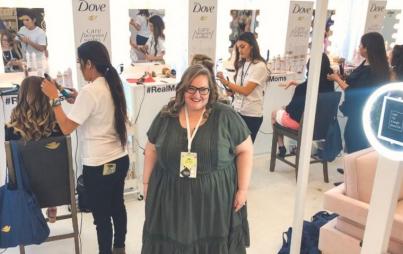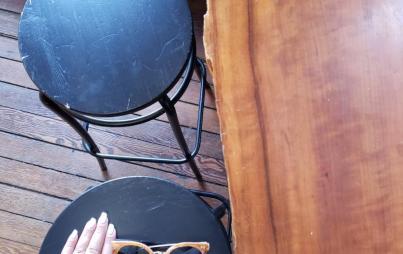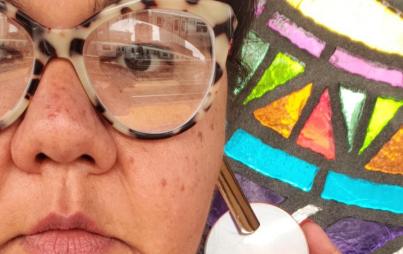
Step away from the scale.
...dieting triggers eating disorders pretty easily. Lots o' ladies (and men) who are "healthy living" enthusiasts are experiencing some form of a socially acceptable eating disorder.
There is a fine line between an eating disorder and a diet, and it's often hard for the outside eye to tell which is which.
It is so easy these days to hide an eating disorder behind the guise of "healthy living" or a passion for health food and exercise. Actually, most people with eating disorders hide the eating disorders from themselves under the guise of healthy living. Yep! Most people with eating disorders don't even know they have eating disorders until they are way into the disorder.
Our culture has a twisted relationship with food and weight. Weight has become so villainized, and there is such constant fear-mongering about health and weight gain that we think we are being responsible by being super-controlled with our eating, even if it is coming at a huge emotional and physical cost.
So what’s the difference between dieting and an eating disorder? Not much. It all depends on how obsessive you are with it, and how much mental and emotional space it takes up in your mind. Like most things, eating disorders exist on a spectrum.
There are also lots of different kinds of eating disorders. And not everyone with a restrictive eating disorder looks “like they have an eating disorder.” Not all people with restrictive eating disorders are underweight. That's because our bodies can be really good at holding onto fat because of...you know...the body’s goal of staying alive. You also do not need to be emaciated to have ill health effects from dieting. You can have anorexia, where you heavily restrict your calories and either be emaciated or not. You can have bulimia, where you binge and purge and be emaciated or not. You can have orthorexia, where you obsess over food purity, and be emaciated or not. You can have binge eating disorder, which is actually most often caused by restriction, and be any weight. Or you can have EDNOS (Eating Disorder Not Otherwise Specified) and have a little smattering of some, all, or other, and be emaciated or not.
It is important to realize that there are lots of people out there, restricting, obsessing over their intake, and obsessing over their "health," who are getting praise for their efforts, and praise for their body, because they don't "look sick."
But they still are — emotionally, for sure, and physically, too.
Again, you don't need to be emaciated to have triggered the starvation response. Think about it: how good would that biological starvation response be if it let us get emaciated before it kicked in?
So how do you know if your diet has slid into eating disorder territory on the spectrum?
- You spend a huge amount of time planning out your meals/food intake
- You feel guilt when you don't follow "the plan"
- You feel like a huge failure when you gain weight
- You feel like your life is divided into times of diets or bingeing
- You sacrifice social gatherings because of food
- When out with friends, you are thinking more about the food than the people you are with
- You think that once you reach your goal weight, everything will be better
- You see your life, week, and activities through the lens of food
- You feel addicted to food
- You think everyone is paying attention to your weight
These feelings are really common with dieting. That's because dieting triggers eating disorders pretty easily. Lots o' ladies (and men) who are "healthy living" enthusiasts are experiencing some form of a socially acceptable eating disorder. And as someone who is now on the other side of it: a diet obsession eating disorder is not fun, but still feels “responsible” while you’re doing it.
Sure, not everyone who has ever been on a diet has crossed over into obsession-land, but many have, and many do, and you'll know if it is you. Once it is affecting your quality of life, it's a disorder. And girrrlllllll (or guuuuyyyy), you deserve so much more than a life that’s all about food and weight.
Living with a Diet Obsession Eating Disorder (DOED, I made it up.) isn't emotionally healthy, physically healthy, or fun. There is a better, freer, fuller life beyond the veggie platter. Join us.







